Training and fostering political theory for cadres and party members is an important step in the ideological work and the organization and cadre work of the Party. President Ho Chi Minh affirmed: "Training cadres is the fundamental work of the Party". Since the founding of the Communist Party of Vietnam , the work of training and fostering political theory has always been of interest to the Party Committees from the Central to the grassroots level, leading and directing.
In Lai Chau, with the attention of Party committees and authorities at all levels, in recent years, district-level political centers (TTCT) in Lai Chau province have performed well the task of political theory education, raising political awareness, ideology, and professional qualifications for cadres in the political system at district and grassroots levels. In particular, the team of lecturers (DNGV) of district-level political centers is the core force that determines the quality of activities of district-level political centers in Lai Chau province, basically meeting the requirements of political theory training and fostering (DTBD). However, the construction of a team of lecturers of district-level political centers in Lai Chau province still reveals difficulties and inadequacies, the issues that arise need fundamental and synchronous solutions to build a team of lecturers who are "both red and professional" to contribute to improving the quality of political theory education at district-level political centers in the coming time.
Current status of building teaching staff of district-level training centers in Lai Chau province
Achievements: Building the number and structure of lecturers: Currently, Lai Chau province has 08 political centers, the total number of staff and full-time lecturers of the centers is 25, including: 08 directors; 08 deputy directors, 15 full-time lecturers; According to the provisions of Article 3, Regulation No. 208-QD/TW dated November 8, 2019 of the Secretariat on the functions, tasks and organization of the district-level political center, the district-level political center is implemented as a part-time lecturer to serve the teaching work, up to now, the whole province has 101 part-time lecturers.
The age structure of the teaching staff of 08 district-level TTCTs, the average age of which is from 40 to under 50 accounts for the highest proportion. This is an extremely favorable factor in carrying out the political tasks of the centers and reflects the reality when the teaching staff of the centers are basically cadres, leaders, and managers of departments, branches, sectors, the Fatherland Front and socio-political organizations at the district level.
In terms of gender structure and ethnic composition, currently there are more men than women, however the difference between male and female lecturers is not large. Currently, Lai Chau province has 20 different ethnic groups living together, therefore, based on practical requirements, the teaching staff of district-level TTCTs in Lai Chau province also has lecturers who are ethnic minorities, diverse and accounting for an average of about 30%. The gender structure and ethnic composition of the 08 district-level TTCTs in Lai Chau province all have an impact on the implementation of political tasks of the centers.
Building the Party's political qualities, ethics, and lifestyle: The team of lecturers and part-time lecturers of the TTCT basically meet the standards according to their titles in terms of professional expertise, political theory, have a strong political stance, and have good moral qualities standardized according to regulations. The team of lecturers and part-time lecturers of the district-level TTCT are all people of mature age and seniority in both age and working experience, 100% of them are members of the Communist Party of Vietnam. The lecturers are all comrades who are enlightened in Marxism-Leninism and Ho Chi Minh's ideology, equipped with a dialectical materialist worldview and a communist outlook on life; meeting the requirements of teaching political theory in the current revolutionary period. The lecturers always uphold the spirit of self-awareness in training and cultivating themselves; always conscious of building teaching style and especially the students' high appreciation of the enthusiasm and high sense of responsibility of the lecturers in teaching, reflecting the dedication, enthusiasm and responsibility for the assigned work. The lecturers and part-time lecturers at the district-level TTCT are all comrades with a firm political ideology, morality, simple and pure lifestyle, modest and sincere, dedicated to work and highly trusted by the students. This is a solid foundation for the 08 district and city-level TTCTs to successfully complete their teaching, training and fostering tasks in recent years.
Building a team of lecturers of district-level political centers in terms of qualifications and capacity: Regarding the level of political theory: Currently, the level of political theory and the professional and technical qualifications of lecturers of district-level political centers tend to be increasingly improved, the number of people with university and postgraduate degrees has increased continuously over the years, gradually meeting the requirements in performing the functions and tasks of the Centers. Most of the full-time lecturers and part-time lecturers have graduated from intermediate and advanced political theory programs: 02 Bachelors, 105 Seniors, 09 Intermediate. With the knowledge of political theory equipped, the team of lecturers of district-level political centers are the ones who can explain to students in a basic way theoretical issues related to local practices, the basis of all aspects of social life. At the same time, this is also a team that can guide students to approach new ways of thinking, content about LLCT and how to apply it to practice in leadership, direction, management, and operation of the socio-economic development process at the grassroots level where they work. Besides, this is also a team that, through its teaching process, contributes to building a revolutionary outlook for students, clearly showing students the responsibilities of cadres and party members at the grassroots level.
Regarding capacity: The staff and lecturers at the district-level training centers are always interested by the Party Committees, arranged according to their expertise and working capacity, meeting the requirements of the tasks; having a sense of responsibility in their work and completing the assigned tasks well. Professional qualifications include 62 comrades with university degrees; 54 comrades with master's degrees; 100% of the 12/12 cultural level; there are no lecturers with doctoral degrees. It can be seen that with the above educational level, the team of lecturers and part-time lecturers at the district level is a team that has been systematically trained, has professional qualifications in many fields, and can well undertake their responsibilities in training and development work at the district-level training centers.
Building the teaching staff of the district-level TTCT in terms of teaching methods and skills: The lecturers of the district-level TTCT have made many innovations in teaching methods and skills. In addition to the presentation method, the lecturers have applied many active teaching methods such as problem posing, dialogue method, group discussion, testing and evaluation method, practice method, objective testing. The flexible use of teaching methods has overcome the limitations of the traditional presentation method, while still maintaining the advantages of this method, stimulating creative thinking and promoting the students' self-learning, contributing to improving the quality of lectures. In addition, the lecturers of the district-level TTCT in Lai Chau province also have good practical capacity, scientific research ability, and practical summary ability. The lecturers and part-time lecturers of the district-level TTCT are mostly officials holding key positions in the district. This is a team of cadres who have been trained in basic professional and political theory skills, thoroughly grasping the Party's policies, guidelines, directives and resolutions in each period. Reality shows that in the process of implementing leadership, direction and management, the district-level leadership team has flexibly applied theory to practice, effectively resolved situations that arose in practice, contributing to the successful completion of local socio-economic development goals.
Reasons for the results achieved: The above results are thanks to the attention of the Party and the State, which have developed and implemented many policies and strategies to build a team of lecturers and teachers in general, including lecturers of district-level training centers; the District Party Committee, district government, and leaders of training centers have paid attention to recruiting, training, and fostering lecturers; invested in additional facilities and working equipment, created a comfortable working environment, promoted scientific research capacity, and summarized practical experiences of lecturers; implemented well the remuneration and welfare regimes; the teaching staff of district-level training centers have a sense of training, striving to improve their political qualities, ethics, lifestyle, professional qualifications, and are responsible in the teaching process.
Besides the achieved results, the work of building a team of lecturers at district-level political centers in Lai Chau province still has limitations:
Firstly, the content of building a team of district-level political lecturers in Lai Chau province according to Regulation 208-QD/TW, dated November 8, 2019 of the Central Party Secretariat (term XII), the staff of the district-level Political Center is from 4-6 people. The Standing Committee of Lai Chau Provincial Party Committee issued Decision No. 1104-QD/TU dated April 26, 2024 on the list of positions of civil servants of the Provincial Political School; District and City Political Centers. Accordingly, the District Political Center has 7 positions including: Leadership and management group 02 positions, specialized professional group 01 position, shared professional professional group 04 positions. In reality, some district-level Political Centers still operate without staff. The Political Centers of Muong Te, Sin Ho, Nam Nhun districts, etc. still lack specialized lecturers, which significantly affects the quality and effectiveness of training and fostering work at the political centers. The fact that the head of the district-level Party Committee's propaganda department is also the director of the district-level political center under a concurrent regime has both advantages and disadvantages, but at the same time, it also creates many difficulties and obstacles in the process of solving the Center's work.
Second, in terms of qualifications and capacity: The teaching staff and part-time lecturers all have university degrees or higher, but many training majors are not suitable for teaching LLCT, and do not have pedagogical certificates; some lecturers are not fully equipped with supporting training certificates according to current regulations; foreign language and information technology knowledge is rarely used, so it gradually fades away, making it difficult to prepare electronic lesson plans, affecting teaching quality.
Third, on the application of active teaching skills: The application of active teaching skills and methods has not achieved the expected results, the communication and sharing with students during teaching hours is still limited; the level of teaching methods of lecturers is still limited, the process of updating knowledge and skills of teaching methods is still limited; some district-level training centers have not paid due attention to the application of active teaching methods for the teaching staff; documents on the application of active teaching methods are still limited; the practical capacity of a few lecturers has not met the requirements in teaching.
Fourthly, in terms of methods: Through the implementation of lecturer recruitment and staff improvement according to job position standards, political centers are still limited. The centers and their teaching staff are only interested in training and improving professional qualifications and political theory, not paying much attention to training in capacity, leadership skills, management, professional skills, foreign languages, ethnic minority languages or computer skills.
A few lecturers and part-time lecturers still show signs of not really promoting the spirit of self-awareness in training and self-cultivation, promoting the sense of responsibility in work, and implementing the ethical standards of teachers.
The current regime and policies for the district-level TTCT lecturers in Lai Chau province still have many difficulties, especially the reward and support regime is still low. The preferential regime for lecturers going to training and BD is still inadequate, not really encouraging and motivating lecturers to actively participate in studying to improve their qualifications and expertise, the budget for studying and researching the practice of the lecturers has not met the requirements of studying TTCT in the new situation.
Inspection, examination and supervision activities at the centers still show some limitations such as: Not really regularly inspecting the management of students; checking and grading exams. The activities of educational and training inspection have not gone into depth. The form of inspection and examination is basically carried out according to plan, the rate of surprise inspections for lecturers is still low. The content of basic inspection is checking records, mainly combined and integrated with the professional duties of lecturers.
Causes of limitations: Firstly, some lecturers and part-time lecturers of district-level training centers are mainly trained in professional work and have not received training and professional development in pedagogical skills; most lecturers at district-level training centers are busy with professional work and have little investment in part-time work. Teaching methods are still heavy on theory and monologue; methods; skills in using modern teaching technologies and means; active teaching methods and skills of some lecturers are still limited; in teaching, they are still heavy on theory, not paying attention to combining theory with practice, and sharing little experience in practical work; Party committees and authorities of some districts have not really paid attention to training and professional development for the team of lecturers and part-time lecturers of district-level training centers; some lecturers do not have much practical and teaching experience.
Second, the attention of the district Party Committee, city Party Committee and local government to the work of building and developing the teaching staff of district-level TTCT is not consistent, especially sending lecturers to study to improve their professional qualifications and LLCT level.
Third, the mechanism and policies to motivate district-level TTCT lecturers are not yet complete, not strong enough, and lack consistency.
Fourth, the financial resources for building the teaching staff still depend largely on the state budget. Investment in developing and improving the quality of the teaching staff is only a small part, not commensurate with the new requirements in the context of current innovation in LLCT education.
Fifth, another fundamental reason is the limitation of professional capacity, the lack of self-awareness and diligence in striving to practice, self-train, and improve capacity and responsibility in teaching to keep up with the requirements of the new stage of LLCT training of some lecturers, and the existence of deference in the process of evaluating the teaching quality of lecturers by leaders and managers of the unit.
Issues raised in building a team of lecturers contributing to improving the quality of political theory education at district-level political centers in the current period
From the above situation, the building of a team of lecturers at the district-level political center of Lai Chau province raises important issues that need to be solved mainly as follows:
Firstly, the Central's regulations on guiding the ranking of lecturers for officials recruited to the District Political Center are still inadequate and contradictory, leading to districts not being able to recruit and arrange lecturers, specifically: Regulation No. 208-QD/TW, dated November 8, 2019 of the Secretariat on the functions, tasks, and organization of the District Political Center and Instruction No. 05-HD/BTCTW, dated May 19, 2021 of the Central Organizing Committee stipulating the standards for full-time lecturers with a university degree or higher (with a major suitable for the job position or expertise held) but in Circular No. 40/2020/TT-BGDDT, dated October 26, 2020 stipulating codes, standards for professional titles, appointments and salary arrangements for teaching officials in public higher education institutions, which stipulates lecturers (grade III), code V.07.01.03 requires standards for training and development: Have a Master's degree or higher suitable for the job position or teaching major. Therefore, the districts do not recruit lecturers for the Center because they do not meet the standards of Circular 40/2020/TT-BGDDT.
Second, at present, some regulations on policies for cadres and lecturers of political centers have not received due attention. District-level political centers are public service units under district-level Party agencies but are not entitled to 25% of public service allowance and 30% of Party work allowance. Long-time lecturers are only entitled to 30% of teaching allowance and seniority allowance.
Third, building a team of district-level TTCT lecturers with sufficient quantity and strong quality is an urgent requirement in the coming time. Lecturers working at district-level TTCT with good political qualities and moral qualities need to be paid attention to and trained in all aspects. Especially in terms of limitations, they need to be trained and improved immediately in terms of political skills, professional qualifications, foreign languages, etc. The most important thing is to develop properly and promptly lecturers who truly have political qualities, moral qualities and intellectual capacity to train and develop them into leading lecturers and managers in the future.
In the trend of globalization and international integration, the capacity and qualifications of human resources must be raised to a new level. The goal of building a team of leaders and managers at all levels with sufficient qualities and capacities of the Party and the State has been and is being set. To do this requires a continuous effort in the training and development of cadres of political academies, political schools and district-level political centers. The training and development activities of district-level political centers in Lai Chau province in recent years have made significant progress, training and development to improve the level of political theory, professional qualifications and skills for thousands of cadres, party members and people at the grassroots level. Due to the requirements of cadre work in the new period and the development trend of the Center in the coming time, it is extremely necessary and urgent to have a team of lecturers that ensures quantity, structure and meets quality requirements. Therefore, investment in human resources must be the top priority of district-level training centers and this investment will only be effective when the work of building a team of lecturers at district-level training centers in Lai Chau province is well implemented.
Source: https://baolaichau.vn/ch%C3%ADnh-tr%E1%BB%8B/vai-tr%C3%B2-%C4%91%E1%BB%99i-ng%C5%A9-gi%E1%BA%A3ng-vi%C3%AAn-t%E1%BA%A1i-c%C3%A1c-trung-t%C3%A2m-ch%C3%ADnh-tr%E1%BB%8B-c%E1%BA%A5p-huy%E1%BB%87n


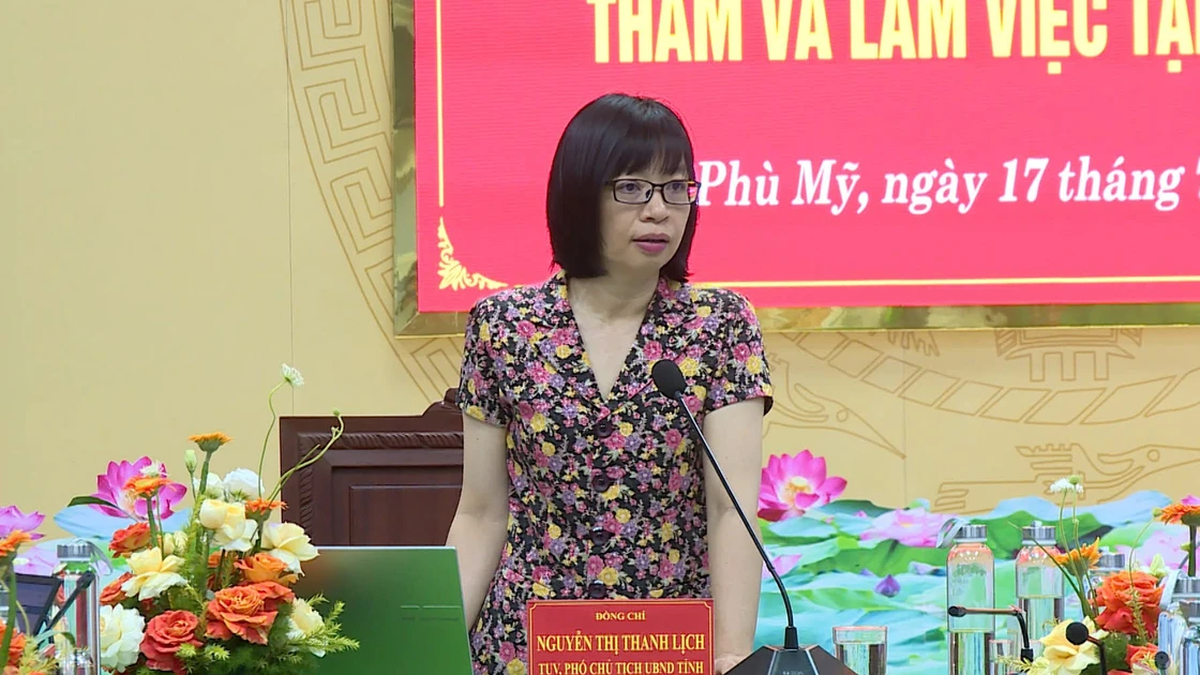


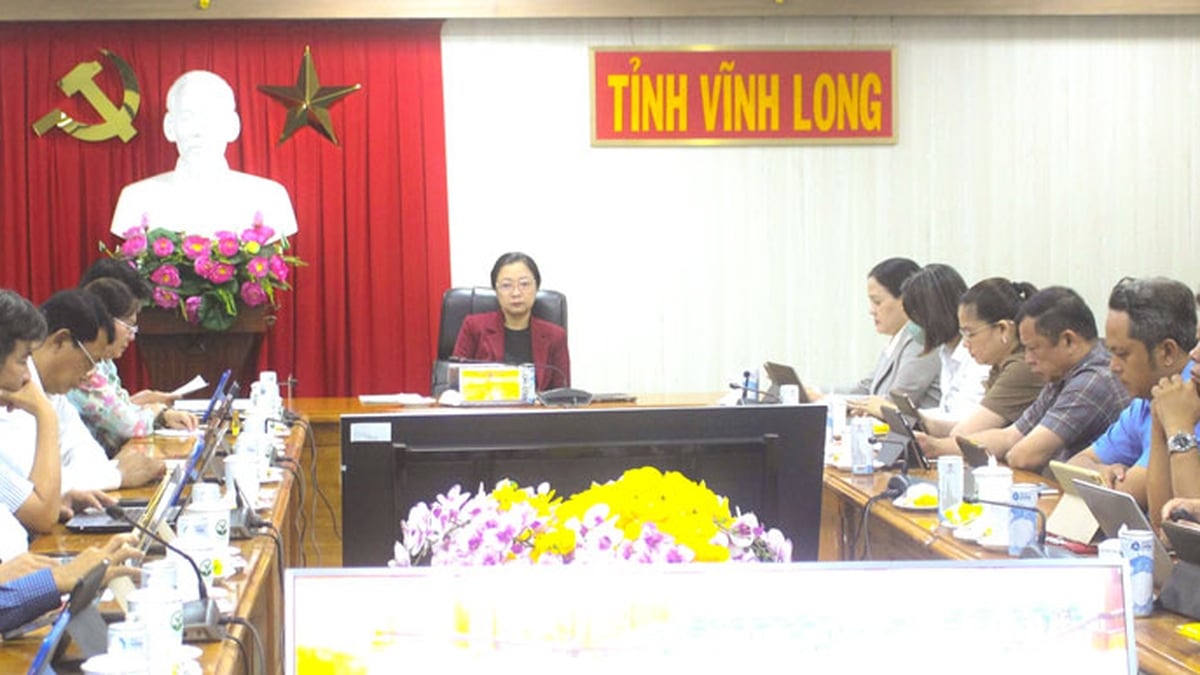
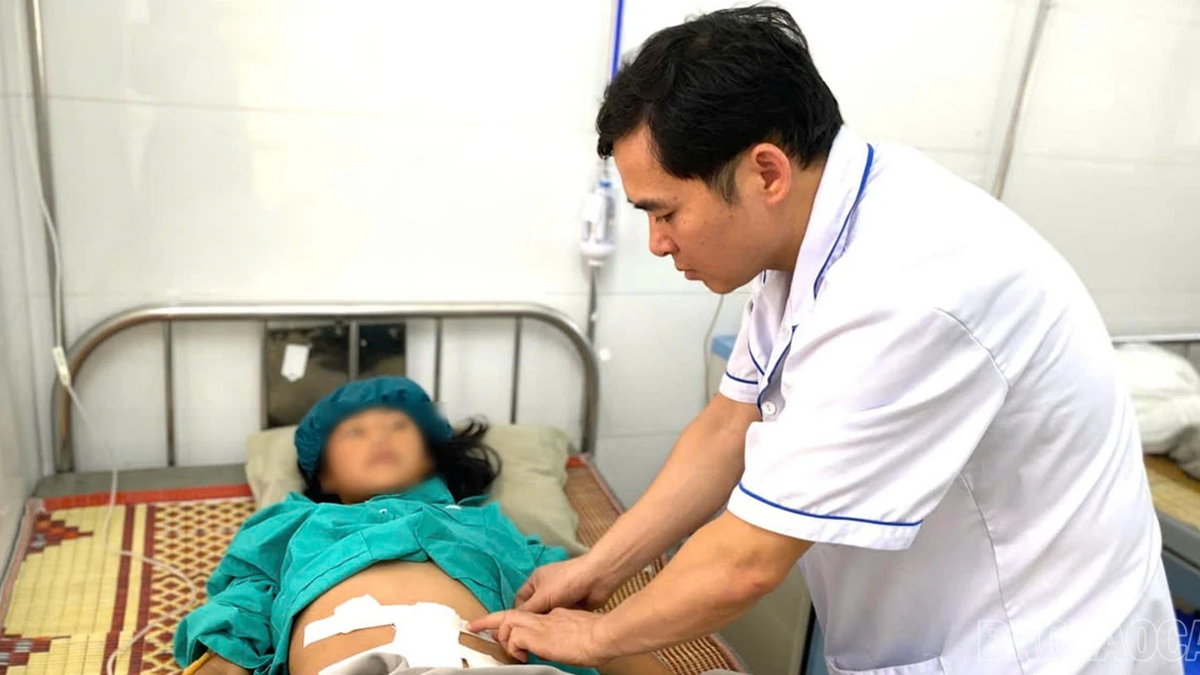
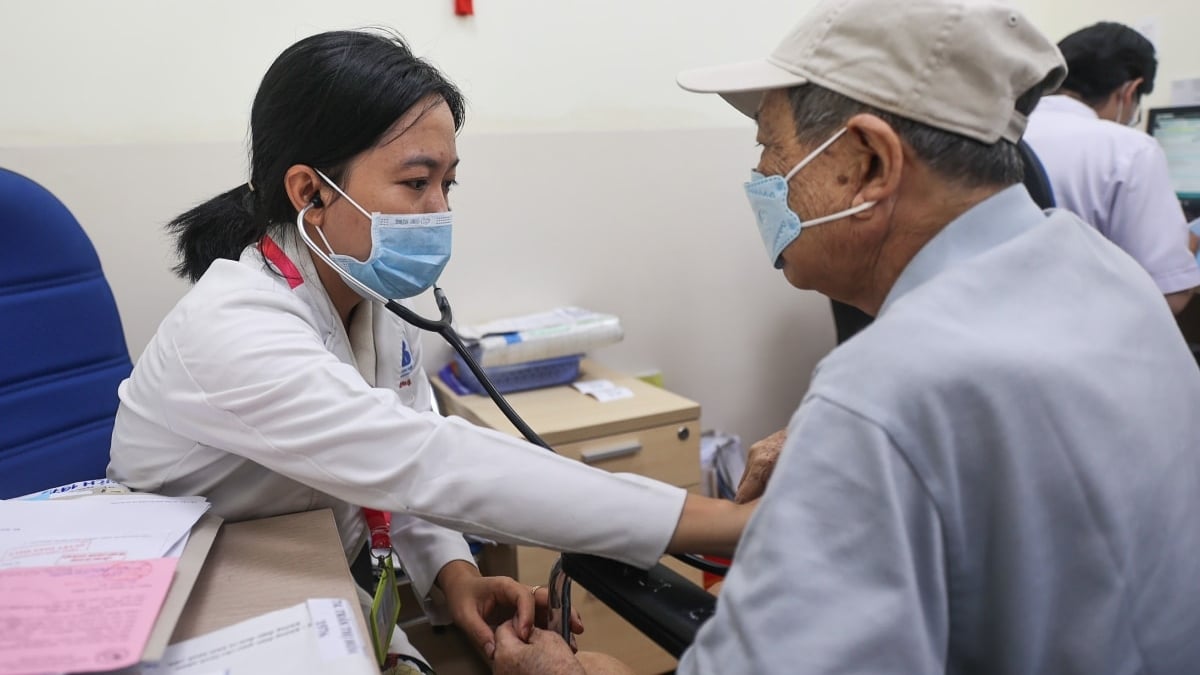
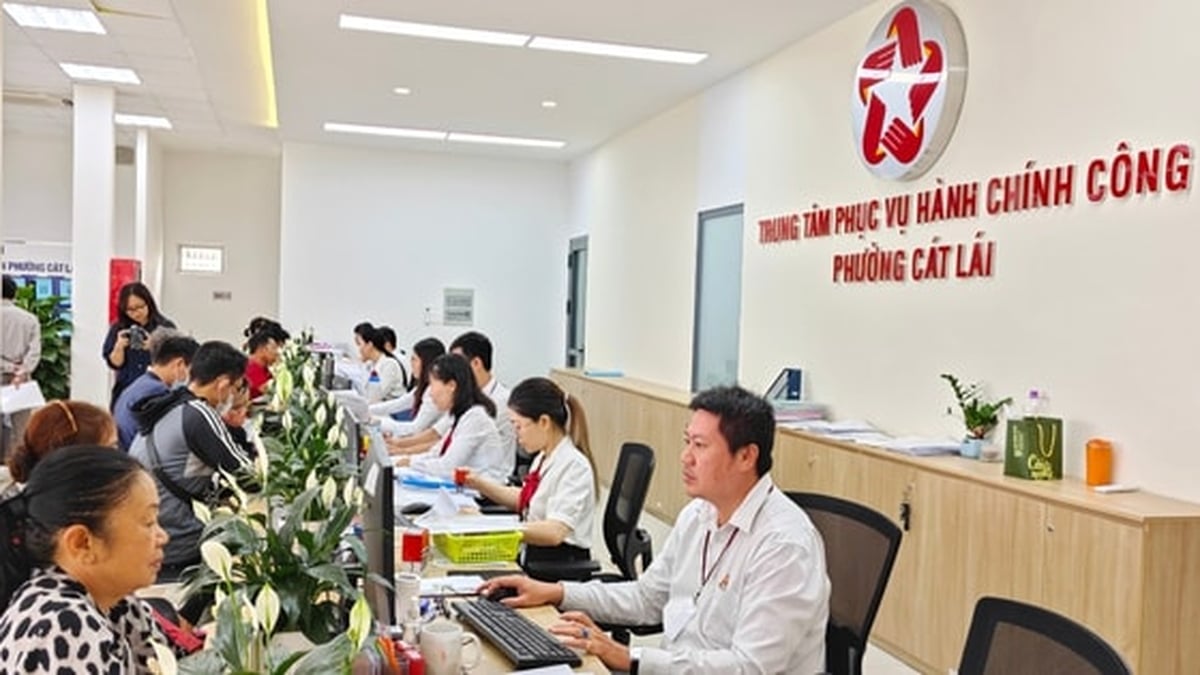
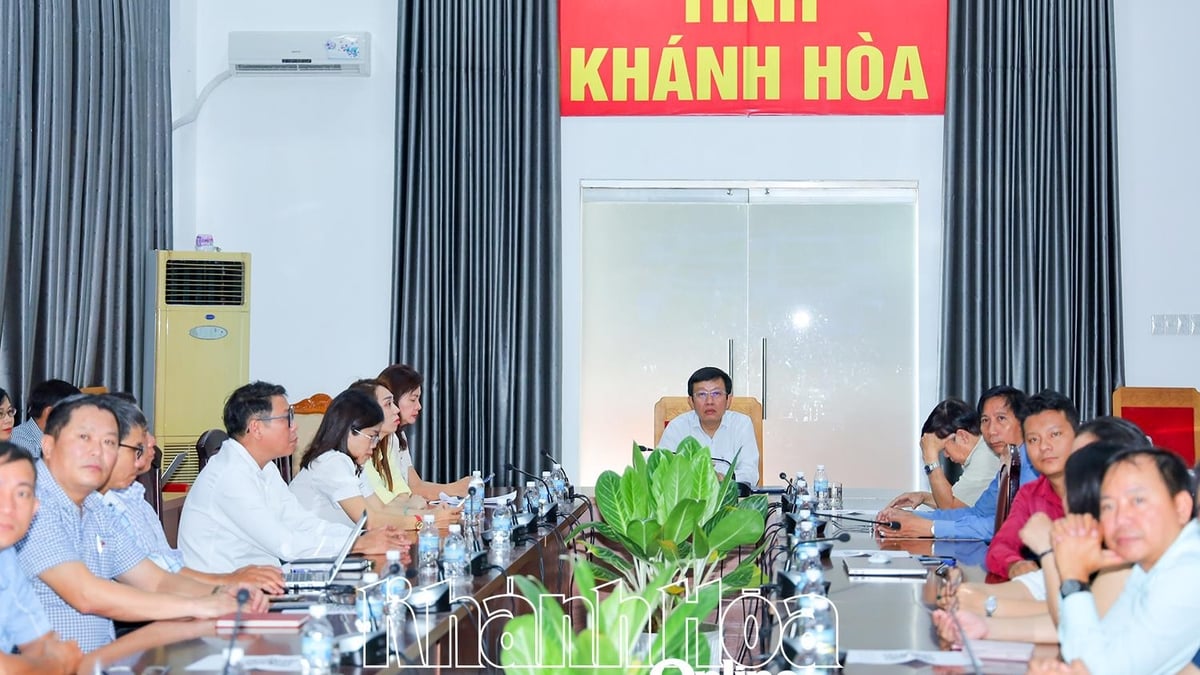









































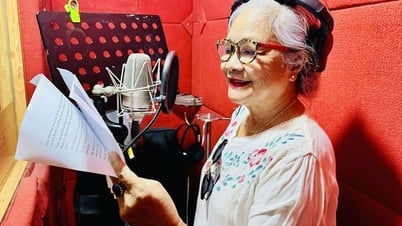

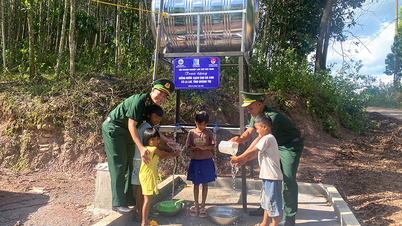


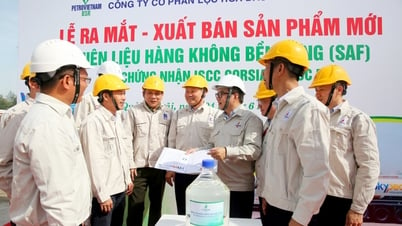




![[Maritime News] More than 80% of global container shipping capacity is in the hands of MSC and major shipping alliances](https://vphoto.vietnam.vn/thumb/402x226/vietnam/resource/IMAGE/2025/7/16/6b4d586c984b4cbf8c5680352b9eaeb0)










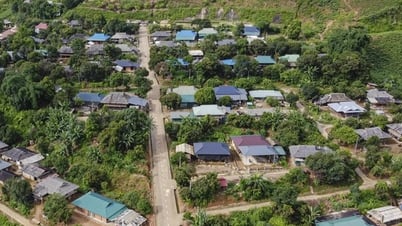



























Comment (0)